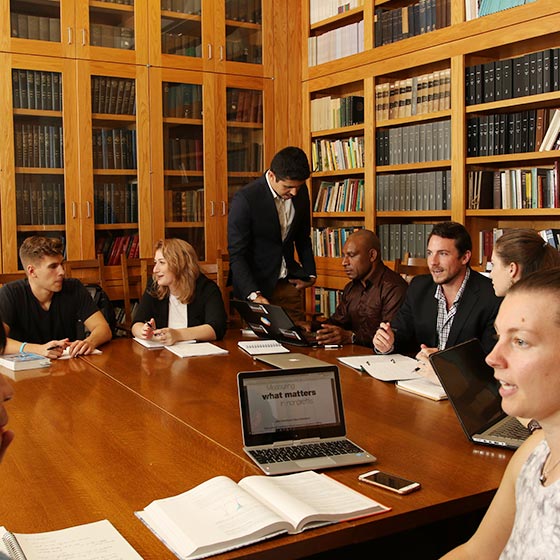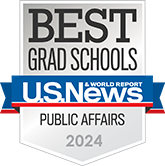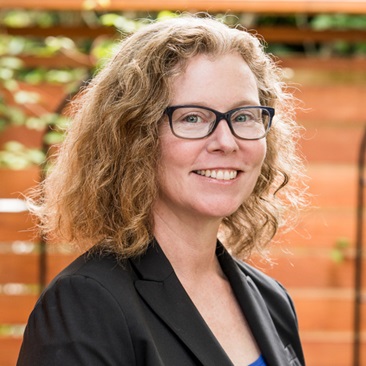complete master’s degree options in as few as 12 months
award-winning faculty of national and international renown
global professional network 37,000 strong
Explore Master’s Degrees
Public Administration
Master of Public Administration
Prepare to lead positive change through a rigorous yet efficient array of skills-building courses.
- On campus, in Syracuse, N.Y.
- 40 credits plus optional internships
- Complete full-time in 12 to 18 months
Executive Master of Public Administration—On Campus or Online
Fill gaps in your knowledge with a program tailored to your career goals—five to seven years of experience required. An online option for working professionals provides added flexibility.
- Online or on campus in Syracuse, N.Y., options (separate programs)
- 30 credits
- Complete part- or full-time in as few as 12 to 15 months
International Relations
Master of Arts in International Relations
Satisfy your curiosity about the world, and develop skills and knowledge to change it for the better.
- On campus, in Syracuse, N.Y.
- 40 credits with a required global internship
- Required career track selection to focus your studies
- Complete full-time in 18 months
Master of Arts in Public Diplomacy and Global Communications
Prepare to drive change in a range of international contexts through effective public and interpersonal communications. One powerful degree, two schools: the Maxwell School and the S.I. Newhouse School of Public Communications.
- On campus, in Syracuse, N.Y., and Washington, D.C.
- 43 credits with a required global internship
- Complete full-time in 18 months
Executive Master's in International Relations
Improve your leadership and management skills and global affairs knowledge—seven years of experience required.
- On campus, in Syracuse, N.Y.
- 30 credits
- Complete on a part- or full-time basis
Executive Master’s in International Relations in D.C.
Leverage the combined experience, knowledge and networks of two top-ranked institutions—the Maxwell School and the Center for Strategic and International Studies—and earn your degree while you work in D.C. Seven years of experience required.
- On campus, in Washington, D.C.
- 30 credits
- Complete part-time in as few as 18 to 20 months
Doctoral Program
PhD in Public Administration
Educate the next generation of public service leaders and conduct research that moves the field of public administration and policy analysis forward.
- On campus, in Syracuse, N.Y.
- 72 credits (36 credits beyond the M.A.)
- Full-time residential program, typically completed in 4.5 years
Department Admission Events
We offer a range of in-person and virtual opportunities to learn more about the Maxwell School and degree programs offered by the Public Administration and International Affairs Department, answer questions about the application process, and help you work toward your goals.
See All Department Admission EventsSchedule a One-on-One Meeting
to ask more in-depth questions not covered in the group information sessions. These individual meetings are informational in nature and are not admission interviews.
Request a MeetingStudy in Washington, D.C.
Our D.C. headquarters at the Center for Strategic and International Studies, top-ranked by the Global Go To Think Tank Index, gives students access to leading minds in the world of policy and international affairs, competitive internships, employment opportunities and a deeply engaged network of D.C.-based alumni.
Need a midcareer boost? Explore our Certificates of Advanced Study
We offer a variety of regional, topical and skills-based Certificates of Advanced Study (CAS) to help you focus and refine your expertise. Some CAS can be earned as part of a master's program while others can be earned independent of a degree. Learn to use data to formulate and analyze policy, deepen your knowledge of effective public management practices, develop techniques to promote collaboration and resolve conflicts, broaden your expertise in a specific region of the world, and more.

Assessing Drivers of Sustained Engagement in Collaborative Governance Arrangements
Graham Ambrose, Saba Siddiki
Journal of Public Administration Research and Theory, February 2024
The formal engagement of diverse stakeholder groups in policy design and implementation has become a mainstay governance strategy. While much has been learned about collaborative governance arrangements in terms of their structure, processes, and participant dynamics, one particularly salient dynamic has been relatively underexplored: the factors contributing to sustained participation in collaborative venues. Public administration and policy have developed a variety of conceptual theories which draw attention to interpersonal interactions and the ability of stakeholders to garner political wins as important contributing factors to sustained participation.
In this paper, we test four theoretically rooted hypotheses to investigate stakeholder attendance in the collaborative governance case of an environmental justice council. We analyze council meeting minute data using computational text analysis tools and a Stochastic Actor-Oriented Model to assess: (i) conflict and concord, measured in terms of repeated (dis)agreement with others; and (ii) interest advancement, or the extent to which a stakeholder makes positive, neutral, and negative comments towards topics which become the council’s annual objectives in relation to an individual’s attendance. Our interpersonal interaction results show increased positive relationships are associated with increased attendance, and increased negative relationships are associated with decreased attendance, but, for both cases, only when interactions are repeated and not one-off.
Our interest advancement results show: (1) an increase in supported annual objectives is associated with decreases in attendance for an individual stakeholder, but (2) increased oppositional and neutral annual topics are associated with a greater likelihood of attendance. This paper contributes to existing scholarship on collaborative governance by offering additional insights into individual factors associated with sustained engagement in the collaborative venue. Furthermore, the paper offers a generalizable methodological approach for analyzing these dynamics drawing on computational text analysis of meeting minute data.
Related News
Commentary

Aug 1, 2024
Commentary

Jul 31, 2024
Commentary

Jul 30, 2024



